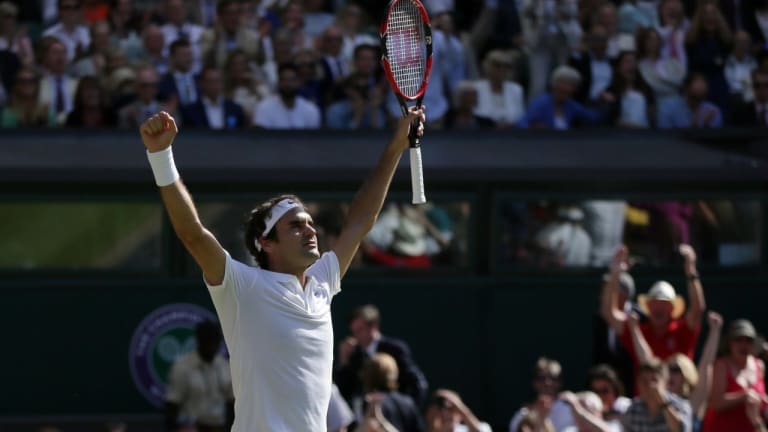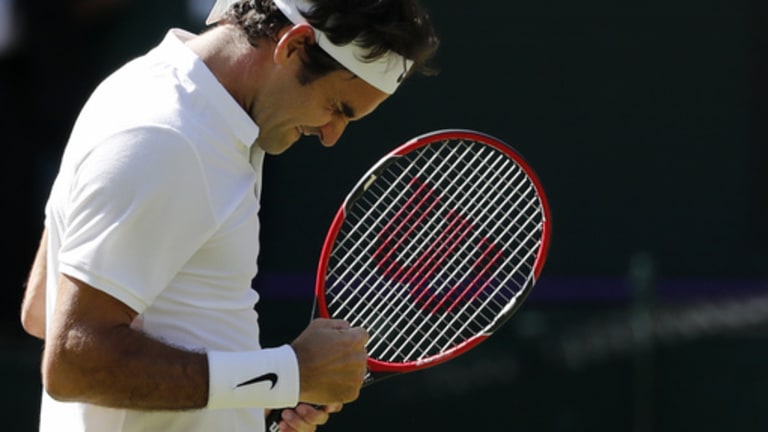—Aside from the drama to come later, this match also featured some thumpingly good tennis. From Cilic it came early; from Federer it came late. Cilic’s coach at the time, Goran Ivanisevic, said that he would need to play “magical” tennis to beat Federer at Wimbledon, and Cilic does his best to oblige. He takes longer swings and aims the ball closer to the lines than normal, and the echo in Centre Court gives his shots a satisfying thud. At the start, you can hear ESPN broadcasters John McEnroe and Chris Fowler talk about Federer as the favorite, but after a little while they begin to turn their eyes to the other side of the net. Cilic, it’s obvious, is putting together a special match.
Federer will finish with 67 winners against 24 errors, and Cilic with 59 and 36. Even factoring in Wimbledon’s notoriously generous stat keepers, this was an impressively clean match, especially when you consider the risk each man was taking. There were very few safe rally balls in this one.
—Cilic powers his way through the first-set tiebreaker and records his only break of the match to win the second set. Through the first two sets, he hit 12 aces and won 87 percent of points on his first serve.
“I just remember being in trouble the whole time,” Federer said.
Cilic keeps pounding in the third. At 3-3, he goes up 0-40 on Federer’s serve, and that seems to be all she wrote. We don’t see it here, but Federer saves one of those break points with a precarious half-volley, a shot that he mentions in his post-match interview as being a turning point. We do see him saving another of those break points with a strong topspin forehand that elicits his first positive emotion of the day.
Federer eventually held for 4-3, and the crowd roared. Cilic double-faulted and was broken in the next game, and Federer closed out the set with a backhand winner that produced an even bigger roar. In the span of 10 minutes, the match had turned 180 degrees. By the middle of the fourth set, McEnroe and Fowler had broken out the obligatory descriptions of “vintage Federer.”
—But Cilic doesn’t cave; even with a little dip in his play, he was still at a very high level. At 5-6, he reaches match point, which Federer wipes away with an ace. (Cilic reaches match point two other times, but we don’t see them here, probably because he misses service returns.)
Then comes the tiebreaker, which compressed a set’s worth of winners, aces, clutch shots and great gets into 20 points. At 7-8, Cilic bends low to thread a backhand pass up the line to save a set point. But at 9-9, Federer outdoes him with the shot of the day. Forced to run hard to his right to dig out a deep Cilic ground stroke, Federer—a squash player in his youth—chops it low and crosscourt, into a difficult spot. Cilic, anticipating something easier, moves forward too quickly and can’t control a forehand down the line.
Federer closes out the fourth set, and while Cilic fights bravely through the first seven games of the fifth, Federer has too much momentum, too much crowd behind him, too much history on this court and, simply, too much game. This was his 10th comeback from two sets down, tying him with Boris Becker and Aaron Krickstein for first on the Open era list.

